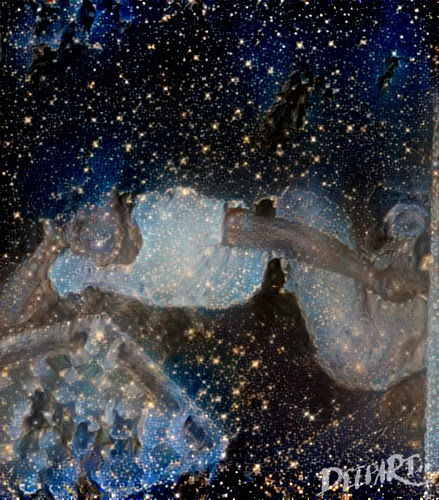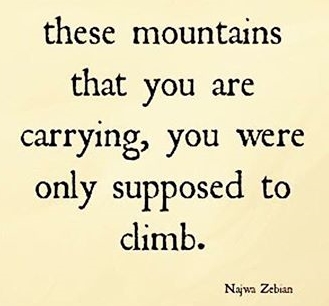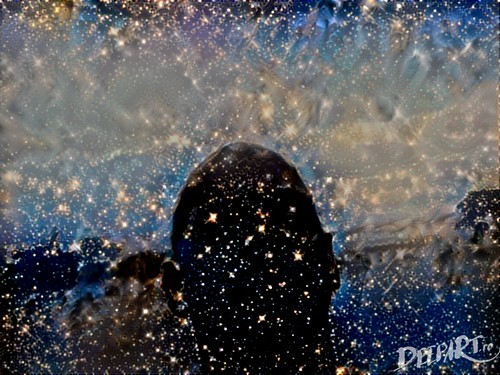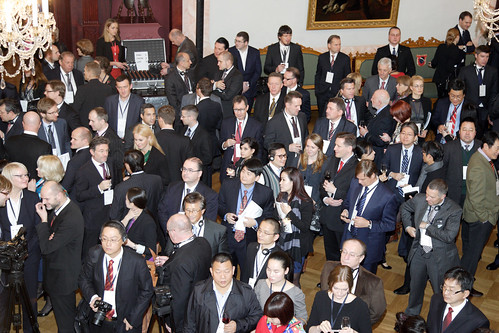 In Trinidad, you have the ‘older heads’ – those that, by virtue of living longer are attributed a wisdom that the ‘younger heads’ do not have. People go to them for advice on all manner of things about life, be it business or pleasure. ‘Older heads’ are the ones with the answers, the advice, those that have had the privilege of living through choices good and bad.
In Trinidad, you have the ‘older heads’ – those that, by virtue of living longer are attributed a wisdom that the ‘younger heads’ do not have. People go to them for advice on all manner of things about life, be it business or pleasure. ‘Older heads’ are the ones with the answers, the advice, those that have had the privilege of living through choices good and bad.
Not long ago, I sat with two younger cousins, an Uncle only 13 years my senior and his wife – our Aunt. We had gone to Annie’s Restaurant for dinner where our connections allowed us to simply let our host pick out the dinner for us. We sat there, joking with each other, telling each other stories about things past. Being the 2nd eldest at the table, I had my own stories to share – we all do – and on the way up with my younger cousins, I spoke about the land and the respect for the people on it, and the way I have learned to do things… and how it allowed me to grow in ways that I would not have.
My second youngest cousin had prompted me in a conversation a day before, so at the table I said to the youngest, “Well – we used to have the older heads to ask about things. And now, look around. These are the older heads.”
I looked around, unsettled by the fact maybe more than those younger at the table. I’d just done my Will after I was reminded of my mortality and the fact that despite trying so hard otherwise, I would likely die of old age. My mind was on those I cared about, near and far, a context that I had been completely unprepared for. I’d had the pleasure of playing with my youngest nephew, a gift that allowed me to see life through younger eyes again, that reminded me of the trust and care that every child should have and so many do not… so many did not, including myself.
I had become an ‘older head’.
I had become someone that was respected by those that meant something to me. I had become someone that people listened to, whose words where important and even in that moment I wondered how everyone had changed so much… but we all had, and the most change was my own in my context. There was no pleasure in it, just a daunting responsibility to do the right things, to say the right things…
And even as I was trying to make a point to everyone at that table – that we were it, that we were now what we used to look up to, the responsibility felt heavy on my shoulders – an unannounced burden, an unsettling weight that was easy to carry and worrisome because it had become so easy to carry.
 It was heavy on my mind throughout my trip to Trinidad. The thought of how a very small action could become either something very good or very bad – about how a word in the right place could move mountains, and a word in the wrong place would doom you to carrying the mountains. The thought of how a life I so recklessly lived for others meant so much to people who mattered, the thought of how a life I gave so willingly from meant so little to those who I gave it for meant so much to those I did not give it to… and the rare and pleasing occasions when I gave and received in amounts I found good enough. There is no equal. There are simply returns not to be measured.
It was heavy on my mind throughout my trip to Trinidad. The thought of how a very small action could become either something very good or very bad – about how a word in the right place could move mountains, and a word in the wrong place would doom you to carrying the mountains. The thought of how a life I so recklessly lived for others meant so much to people who mattered, the thought of how a life I gave so willingly from meant so little to those who I gave it for meant so much to those I did not give it to… and the rare and pleasing occasions when I gave and received in amounts I found good enough. There is no equal. There are simply returns not to be measured.
Many will say that I’m not old enough to think some of the thoughts that I do, or to feel as I do, and I can’t argue their frame of reference.
My frame of reference is understanding that I can never go home, but that I can choose to be at home wherever I am. I have learned to take sacrifices for what they are, to know that some decisions might have been better with more knowledge and wisdom without the sting of regret that wounds so many. I have learned to embrace the unrequited, to be silent when words will have no effect, to deny what I want to get what I want, and to be myself and accept the good and bad within myself.
 As I told a younger person over a bottle of Angostura One on my last night in Trinidad in a rare moment when I could shoot straight with someone elusive even when there… we are not limited by those who have gone before. We are not doomed to their shadows by anything but ourselves, and within we have the capacity to dare to find the amazing human beings we are, to revel in the good and accept the bad.
As I told a younger person over a bottle of Angostura One on my last night in Trinidad in a rare moment when I could shoot straight with someone elusive even when there… we are not limited by those who have gone before. We are not doomed to their shadows by anything but ourselves, and within we have the capacity to dare to find the amazing human beings we are, to revel in the good and accept the bad.
And most of all, I have learned that while through attrition I have become one of the ‘Older Heads’ at some tables, I still have much to learn and that everyone and everything has something to teach me.









 It was heavy on my mind throughout my trip to Trinidad. The thought of how a very small action could become either something very good or very bad – about how a word in the right place could move mountains, and a word in the wrong place would doom you to carrying the mountains. The thought of how a life I so recklessly lived for others meant so much to people who mattered, the thought of how a life I gave so willingly from meant so little to those who I gave it for meant so much to those I did not give it to… and the rare and pleasing occasions when I gave and received in amounts I found good enough. There is no equal. There are simply returns not to be measured.
It was heavy on my mind throughout my trip to Trinidad. The thought of how a very small action could become either something very good or very bad – about how a word in the right place could move mountains, and a word in the wrong place would doom you to carrying the mountains. The thought of how a life I so recklessly lived for others meant so much to people who mattered, the thought of how a life I gave so willingly from meant so little to those who I gave it for meant so much to those I did not give it to… and the rare and pleasing occasions when I gave and received in amounts I found good enough. There is no equal. There are simply returns not to be measured.